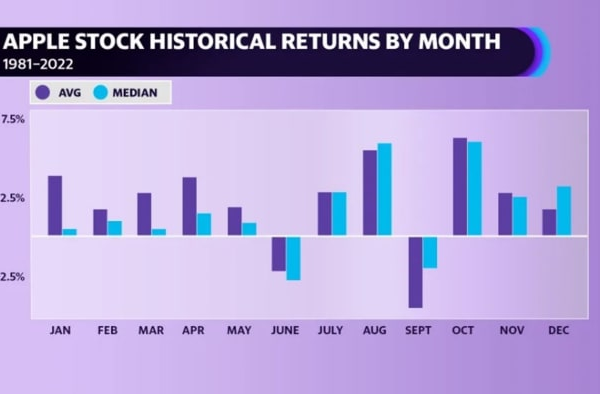Psystar Open Computer: A Controversial Mac Clone History

The Psystar Open Computer marked a significant moment in the history of Mac clones when it launched in April 2008, providing an affordable alternative to Apple’s proprietary systems. For the first time in over a decade, users could run Mac OS X on a non-Apple machine without having to engage in the complex DIY process of building a ‘hackintosh.’ However, this innovation quickly led to a contentious legal battle, as Apple reacted to Psystar’s incursions on its market. The ensuing Apple lawsuit against Psystar highlighted the tension between proprietary technology and fiercely independent brands. As the details of the conflict unfolded, it became a pivotal case study in the landscape of computer technology, featuring prominently in discussions about Psystar technology and the ongoing relevance of clone systems in an era dominated by Apple products.
Remember when the concept of Mac clones stirred excitement among tech enthusiasts? The Psystar Open Computer ushered in a new era for computers capable of running Apple’s Mac OS, breaking the barriers established by Cupertino, which had long dominated the market. With the development of what some called ‘hackintosh computers,’ Psystar provided an innovative solution for users desiring a budget-friendly approach to Apple’s software. The intrigue around Psystar’s technology reflects the ongoing debates about intellectual property and competition within the tech industry, especially as the case evolved into a legal drama rife with implications for future innovation in computing. Open Computer reviews often discussed not only performance but also the ethical considerations of circumventing corporate restrictions.
The Rise of Psystar Open Computer: A Game-Changer in the World of Hackintosh
Psystar’s launch of the Open Computer in April 2008 marked a significant milestone in the evolution of personal computing, combining the allure of Apple’s OS X with the affordability of traditional PC hardware. For many users who desired a Mac experience without the hefty price tag, this presented an unprecedented opportunity. By adapting technology from the OSx86 Project, Psystar enabled a new breed of computers that ran Apple’s software natively, eliminating the arduous process of creating a hackintosh from scratch. This not only brought the Mac operating system into reach for thousands but also challenged the status quo of how personal computers could operate.
The Open Computer was touted to deliver equivalent performance to Apple’s offerings at a fraction of the cost. With starting prices as low as $399, it appealed to budget-conscious consumers who found Apple’s entry-level devices lacking in terms of power and expandability. Many enthusiasts praised the Open Computer for its customizable options, robust performance metrics, and the thrill of using Mac OS X without being tied to a premium price point. However, this disruptive innovation also attracted the ire of Apple, who saw their proprietary software being used by unauthorized manufacturers.
A Legal Battle: Apple vs. Psystar and the Consequences for Mac Clones
The introduction of the Open Computer was not just a technological breakthrough; it unleashed a legal storm that would have far-reaching consequences. Within months of its launch, Apple filed a lawsuit against Psystar, citing multiple infringements including breaches of copyright and violations of the Digital Millennium Copyright Act. Apple argued that by producing the Open Computer, Psystar was undermining the principles of the software licensing agreement and diluting the Apple brand. The legal battle underscored how fiercely Apple protected its intellectual property and set a precedent for subsequent cases involving software licensing.
In 2009, the U.S. District Court ruled in favor of Apple, granting them a permanent injunction against Psystar. This ruling marked the end of an ambitious attempt to revive the Mac clone market after a decade-long hiatus. Apple’s victory reinforced the idea that proprietary software would remain closely guarded. Psystar’s downfall, culminating in a settlement where they agreed to pay damages of $2.67 million, sent a clear message to other potential clone makers about the risks of challenging Apple’s legal domain. In essence, the Open Computer saga highlights the complexities and repercussions that arise when technological innovation collides with strict corporate law.
The history of Mac clones, including the rise and fall of Psystar’s Open Computer, illustrates not only the allure of Apple’s operating system but also the challenges faced by competitors in a market rigidly controlled by copyright and competitive practices. The dream of affordable Mac clones remains just that—a dream—as Apple continues to assert its dominance in the technological landscape.
Exploring the Legacy of Psystar and the Hackintosh Movement
Despite the short-lived nature of the Open Computer, Psystar’s impact on the hackintosh movement cannot be overlooked. The company’s approach provided a template for other enthusiasts and companies interested in developing similar systems, thereby fostering a community dedicated to exploring the possibilities of running macOS on non-Apple hardware. This movement reignited interest in the idea of digital freedom and customization in a marketplace often constrained by tight hardware compatibility and licensing restrictions.
Fans of the hackintosh scene still reminisce about Psystar’s efforts, viewing them as a catalyst in the ongoing discussion about software ownership and user rights. The excitement of successfully running macOS on diverse hardware configurations has inspired many to continue pushing the boundaries of what is possible, even in the face of legal challenges. While Psystar’s legacy may be one of legal consequence, it also stands as a testament to consumer desires for flexibility and choice in personal computing.
Technological Insights: How Psystar Innovated with the Open Computer
The Psystar Open Computer integrated various technologies to create a unique offering that resonated with users seeking an alternative to premium-priced Apple devices. Utilizing components like the Intel Core 2 Duo processor and DDR2 memory, Psystar was able to deliver a capable machine ready to harness the power of macOS. The result was a hybrid system that functionally mirrored Apple’s lower-end products but at a lower price point, appealing to both gamers and general users alike.
The adaptation of the OSx86 Project technology allowed Psystar to circumvent traditional restrictions on macOS installation, a move that would have profound implications on the computing landscape. This innovation not only prompted discussions about copyright infringement but also highlighted a burgeoning culture of customization and user empowerment. Psystar’s hardware could be easily upgraded, offering a distinct advantage over Apple’s more rigid product offerings.
Controversy in Consumer Electronics: The Business Model Behind Psystar
Psystar’s business model was wholly dependent on capturing a niche market that desired the Mac experience without the conventional Apple constraints. With the company’s Open Computer, they sought to entice consumers who had been priced out of the Mac segment but were still passionate about the user experience that macOS provided. This underlying principle resonated well with tech enthusiasts who reveled in the idea of creating their own Mac-like experience on affordable hardware.
However, the ethical implications of Psystar’s business model sparked significant debate. Many argued that the practice of selling software without the approval of its creator undermined innovation and proper licensing protocols. Critics of Psystar claimed that the company’s approach could jeopardize future developments in software and hardware unless clear guidelines were established for companies looking to capitalize on established technologies without proper licenses.
Reflections on the Psystar Open Computer and its Influence on Current Technologies
The Open Computer’s existence has had a lingering effect on the tech world, drawing attention to consumer rights and the debate between proprietary versus open systems. The dynamic set in motion by Psystar’s foray into clone computers has fostered an ongoing conversation about the rights of users to modify and control the technology they own. While the subsequent legal battles might have effectively ended Psystar’s operation, the company’s attempts to create a market for affordable Mac clones remain as a significant case study in technology entrepreneurship.
In today’s world, where consumer preferences are increasingly leaning towards customization and flexibility, the implications of the Open Computer movement continue to resonate deeply. The resurgence of interest in modular and user-built computers reflects many of the principles initially championed by Psystar, albeit in a more legally compliant format. Thus, while the Open Computer may be a relic, its legacy lives on in the ongoing evolution of consumer electronics.
A Customer’s Perspective: Reviewing the Open Computer Experience
Customers who engaged with the Psystar Open Computer often shared mixed reviews, with many highlighting the thrill of using macOS without the usual financial burden of purchasing a Mac. Users appreciated the performance capabilities that Psystar offered, particularly when compared to entry-level Apple machines. Reviews often praised its design and functionality, showcasing it as a competitive alternative that one could customize to personal preferences.
However, the lack of official support, as noted by several early adopters, often made the experience less than ideal. Users found themselves navigating a landscape filled with technical challenges and potential pitfalls associated with running hacked versions of Apple software. Reviews frequently pointed out that while the Open Computer provided a unique experience, it came with risks that typical Mac users might not be used to, ultimately leading to conversations about reliability and end-user experience in the hackintosh community.
The End of an Era: The Closure of Psystar and Open Computer
As legal battles mounted and the terms of the settlement were finalized, the closure of Psystar in 2009 marked the end of an ambitious attempt to revive the macOS clone market. The company had ignited a firestorm of interest among tech enthusiasts and potential competitors, but it was unable to withstand the legal ramifications of its innovations. Ultimately, this closure invites reflections on the balance between innovation and legal limitations in the tech industry.
In retrospect, the rise and fall of Psystar and its Open Computer reveal much about the challenges faced by new entrants in the tech industry, especially when they seek to leverage established platforms without permission. The story serves as a cautionary tale for future innovators, wielding the dual lessons of enticing opportunity and significant risk while navigating the complex landscape of tech law and consumer rights.
Future Perspectives: Lessons from Psystar’s Journey in Innovation
Psystar’s journey through the landscape of computing innovation provides critical lessons for future businesses in technology. The company demonstrated how the overlap between consumer demands for affordable technology and the strict regulations of intellectual property can create tension and lead to a groundbreaking yet contentious product. Future innovators can learn the importance of understanding the complex legal frameworks that govern software and hardware distribution challenges, ensuring that they respect existing licenses while seeking their unique place in the market.
Moreover, the enduring appeal of the hackintosh movement reminds us that technology enthusiasts will always seek opportunities for customization and alternative solutions. Businesses aiming to introduce alternative technologies might benefit from embracing those consumer desires while being mindful of legal realities. By doing so, they can innovate responsibly and sustainably, potentially avoiding pitfalls similar to those that beset Psystar, while also harnessing the drive for creativity in today’s tech landscape.
Frequently Asked Questions
What is the Psystar Open Computer and how does it differ from traditional Mac computers?
The Psystar Open Computer was a revolutionary machine introduced in April 2008 that allowed users to run Mac OS X natively on non-Apple hardware, unlike traditional Macs which require the Apple ecosystem. This was significant as it opened the doors for hackintosh-like systems without the need for complex assembly, offering a direct competitor to Apple’s computers.
What led to the Apple lawsuit against Psystar concerning the Open Computer?
Apple filed a lawsuit against Psystar in 2008 shortly after the launch of the Open Computer, alleging copyright infringement and violation of software licensing agreements. Apple claimed that Psystar’s operation violated the legal protections around Mac OS X, ultimately leading to a U.S. District Court ruling in favor of Apple and a permanent injunction against Psystar.
How did the history of Mac clones influence the creation of the Psystar Open Computer?
The history of Mac clones dates back to the 1990s when Apple initially licensed its operating system to other manufacturers. However, after realizing the impact on its profits, Apple halted this program. Psystar aimed to reignite that clone era with the Open Computer, allowing users to run OS X on lower-priced hardware, which became controversial as it circumvented Apple’s licensing model.
What features did the Psystar Open Computer offer that appealed to users?
The Psystar Open Computer featured a 2.2GHz Intel Core 2 Duo processor, 2GB of RAM, and integrated graphics, with the ability for users to customize hardware. It provided a cost-effective alternative to Apple’s machines, offering performance advantages at a lower price, which attracted users seeking a Mac-like experience without the high cost.
What consequences did Psystar face after the legal battle with Apple?
Following its legal battle with Apple, Psystar was ordered to pay $2.67 million in damages and was issued a permanent injunction preventing the company from selling its Open Computer. This effectively ended Psystar’s operations and marked a significant moment in the history of hackintosh computers and copycat cloning efforts.
Can you explain the role of the OSx86 Project in the development of the Psystar Open Computer?
The OSx86 Project played a crucial role in enabling Psystar to create the Open Computer. This collaborative hacking initiative aimed at allowing Mac OS X to run on standard x86 hardware, which gave Psystar the technological foundation needed to produce their clone machines with OS X pre-installed.
Are there any reviews available for the Psystar Open Computer?
Yes, there are various reviews available for the Psystar Open Computer, which highlight its performance, features, and the implications of running Mac OS X on non-Apple hardware. These reviews often compare the Open Computer directly to existing Mac models, emphasizing the cost benefits and challenges.
| Key Point | Details |
|---|---|
| Launch Date | Psystar’s Open Computer was first shipped on April 27, 2008. |
| Mac Clones History | In the 1990s, Apple licensed its OS to third-party manufacturers, resulting in clone Macs until the program was terminated. |
| Psystar’s Aim | Psystar aimed to create an affordable clone that could run OS X without needing to build a hackintosh. |
| Legal Battle | Apple sued Psystar in July 2008 for copyright infringement and trademark violation. |
| Court Ruling | In 2009, a U.S. District Court ruled in favor of Apple, leading to an injunction against Psystar and a $2.67 million damages payment. |
Summary
The Psystar Open Computer marked a significant shift in the computer market by offering a legal way to run Mac OS X on non-Apple hardware, breaking the long-standing norm of building hackintosh systems. However, this innovation led to legal conflicts with Apple that highlighted the complexities of software licensing and copyright law. Ultimately, despite the initial promise, Psystar’s venture was curtailed by Apple’s legal actions, demonstrating the challenges faced by companies that attempt to disrupt established markets.
You may also like

iOS App Store Success: A Milestone in Digital Distribution


First Email from Space: The Macintosh Portable’s Legacy
Archives
Calendar
| M | T | W | T | F | S | S |
|---|---|---|---|---|---|---|
| 1 | ||||||
| 2 | 3 | 4 | 5 | 6 | 7 | 8 |
| 9 | 10 | 11 | 12 | 13 | 14 | 15 |
| 16 | 17 | 18 | 19 | 20 | 21 | 22 |
| 23 | 24 | 25 | 26 | 27 | 28 | |